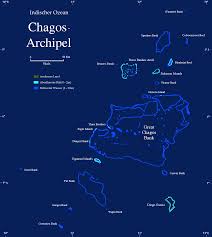The Geopolitical Importance of the Chagos Islands

Introduction
The Chagos Islands, a group of over 60 islands in the Indian Ocean, have become a focal point in international law and geopolitics. This archipelago, particularly Diego Garcia, which hosts a significant military base for the United States, reflects the complex relationships between sovereignty, environmental issues, and strategic interests. The ongoing disputes over the islands’ ownership underline their relevance not just to the United Kingdom and Mauritius, but to global politics as a whole.
Historical Context
The United Kingdom took control of the Chagos Islands in 1814, establishing a colonial presence that has led to a protracted legal and diplomatic struggle. The British government forcibly removed the indigenous Chagossians from the islands between 1967 and 1973, relocating them to Mauritius and other parts of the world. This has raised significant human rights concerns and prompted calls for the right to return on the part of the displaced populations.
Current Developments
Recently, the International Court of Justice (ICJ) ruled in a 2019 advisory opinion that the UK’s continued administration of the Chagos Islands is illegal and urged the return of sovereignty to Mauritius. This ruling has bolstered international efforts from the Mauritian government to reclaim the islands, yet the UK has rejected the ruling, citing its strategic military interests. The US military base on Diego Garcia plays a crucial role in various military operations, highlighting why the UK is hesitant to relinquish control. Additionally, the UK and the US have emphasized the importance of the base in the context of regional security concerns, particularly concerning China’s growing influence in the Indian Ocean.
Environmental Considerations
Beyond political implications, the Chagos Islands face environmental threats, including climate change and biodiversity loss. The area is recognized for its rich marine life and has been designated as a marine protected area. Conservationists argue that the displacement of the Chagossians while also maintaining military operations poses a risk to the islands’ ecological integrity.
Conclusion
The Chagos Islands remain a contentious topic at the intersection of human rights, international law, and global security. As discussions continue regarding the sovereignty of these islands, it is evident that their fate could influence diplomatic relations in the Indian Ocean region and beyond. The outcomes of these issues may shape not only the future of the displaced Chagossians but also the balance of power in regional geopolitics.









